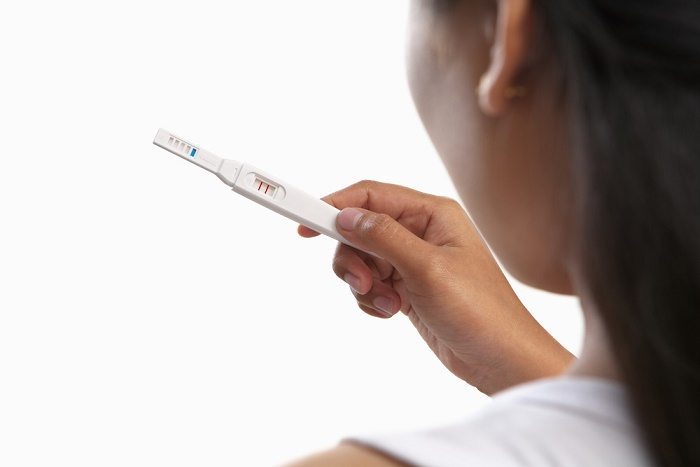Colorado’s ‘Personhood’ Amendment Is an Attack on Women of Color
If Colorado expands the definition of "person" and "child" in its criminal code to include "unborn human beings," the results would be especially devastating for Latina women and other women of color.

Gina Millan, a community and parent organizer in Denver, has been doing education outreach in the local Latino community for more than a decade. Although she spends her days discussing access to reproductive health care, she doesn’t typically share her own story—that is, until Colorado’s “personhood” amendment, Amendment 67, made it to the ballot.
In 2006, Millan, who was pregnant with her second child, found herself bleeding late one evening. She had already been told that she had a high-risk pregnancy and had worked hard to take all the necessary precautions; when she went to the emergency room, though, the doctor told her and her husband that the placenta had detached. She had lost the pregnancy.
Despite the physical hurt, she recalls now, the greatest pain was “apologizing to my daughter, who was six years old at the time, and telling her that she was not going to have a brother or a sister. She cried. My husband cried. And I cried.”
It is bad enough that women and families who have experienced pregnancy loss often feel isolated or abandoned. But if Amendment 67 passes in Colorado, these women could also conceivably face interrogation, investigation, or even incarceration.
Amendment 67 marks the third attempt in six years to pass a measure that would grant “personhood” to fetuses. This year’s measure would redefine the words “person” and “child” in Colorado’s criminal code to include “unborn human beings.” In turn, this would have enormous potential to restrict access to abortion, fertility services, and many common forms of contraception.
Unsurprisingly, the amendment language and supporters’ campaign materials are very confusing: In fact, many Colorado residents reportedly changed their minds on the measure, saying they would reject it instead once they received accurate information about its possible effects. But even the measure’s supporters explicitly say that Amendment 67 would ban all abortion, including for women who are survivors of sexual assault or who face a life-risking complication. Moreover, it could require official investigations into any birth other than a live one.
Someone in Millan’s situation, for example, could face being treated like a criminal—such as being asked whether she herself had done anything to harm her fetus—in the midst of an already harrowing moment for her and her family.
Furthermore, we know that when access to reproductive health services is limited it falls hardest on Latina women and other women of color. For example, Latinas are twice as likely as white women to experience unintended pregnancies; one-quarter of all women seeking abortion are Latina. This can be attributed to barriers to information, cultural stigma, lack of cultural competence in health care, and the lack of affordable access to the most effective forms of birth control. Additionally, Latina women and Black women experience higher rates of miscarriage than white women do. The effects of Amendment 67, therefore, would likely be disproportionately severe for them.
Proponents have refuted the claim that Amendment 67 could mean that women facing miscarriage or stillbirth could be subject to prosecution, but personhood laws in other states and countries have resulted in women being arrested or even imprisoned in these very situations. In El Salvador, for example, 17 women are facing sentences of up to 40 years in prison on abortion-related charges thanks to the country’s draconian anti-abortion law—a statute that Personhood USA, the organization pushing for Amendment 67, has explicitly stood behind.
Meanwhile, in Tennessee, at least one woman has been arrested in recent months as a result of legislation that incarcerates women struggling with addiction while pregnant. This is just one of a slew of laws and policies that police pregnant women and threaten them with arrest and incarceration. And many of these, again, are expected to have particularly devastating effects on women of color.
Supporters of Amendment 67 talk about protecting women and children, but it would actually do the opposite. Politicians should not be meddling with personal decisions about pregnancy, parenting, and abortion. Each person should be able to weigh their options and seek the counsel and support of those they trust. This value is shared by a majority of Latino voters too: In a recent survey by Lake Research Partners, 74 percent of Latino voters agreed this is not a place for politicians to interfere.
We do not need people prying into the big and important moments in our lives. We should be working to eliminate barriers to health care and support women and families in our community, rather than playing dangerous, short-sighted political games.
